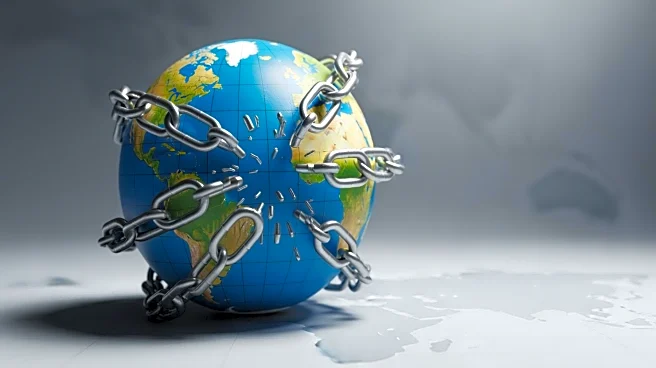What's Happening?
President Trump has expressed confidence in his ability to persuade Russian President Vladimir Putin to end the ongoing war in Ukraine. During a meeting with Ukrainian President Volodymyr Zelensky at the White House, Trump stated that he believes Putin wants
to end the conflict. This assertion comes amid heightened tensions and international efforts to resolve the situation in Ukraine, which has seen significant military and civilian casualties.
Why It's Important?
President Trump's comments are significant as they suggest potential diplomatic efforts to resolve the Ukraine conflict, which has been a major international issue. If successful, Trump's engagement with Putin could lead to a de-escalation of hostilities and a shift in geopolitical dynamics. The statement also reflects Trump's approach to foreign policy, emphasizing direct negotiation and personal diplomacy. The outcome of these efforts could impact U.S.-Russia relations and influence global stability.
What's Next?
The international community will be watching closely to see if President Trump follows through on his claim and engages in diplomatic talks with Putin. Any progress in negotiations could lead to changes in military strategies and alliances in the region. The U.S. government may also face pressure to clarify its stance and strategy regarding the Ukraine conflict. Reactions from European allies and NATO members are expected, as they have vested interests in the resolution of the war.
Beyond the Headlines
Trump's assertion raises questions about the effectiveness of personal diplomacy in resolving complex international conflicts. It may lead to discussions on the role of individual leaders in shaping foreign policy and the potential risks and benefits of such approaches. The situation also highlights the challenges of balancing national interests with global peace efforts, as well as the ethical considerations in negotiating with authoritarian regimes.














